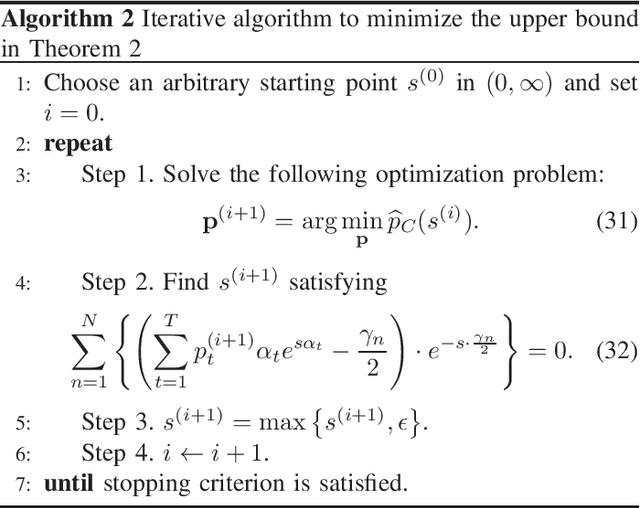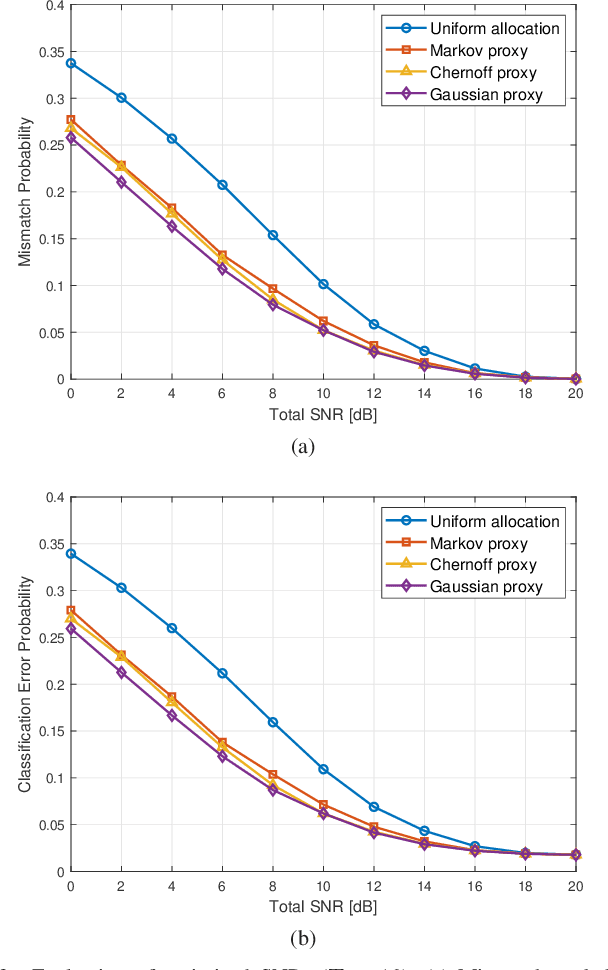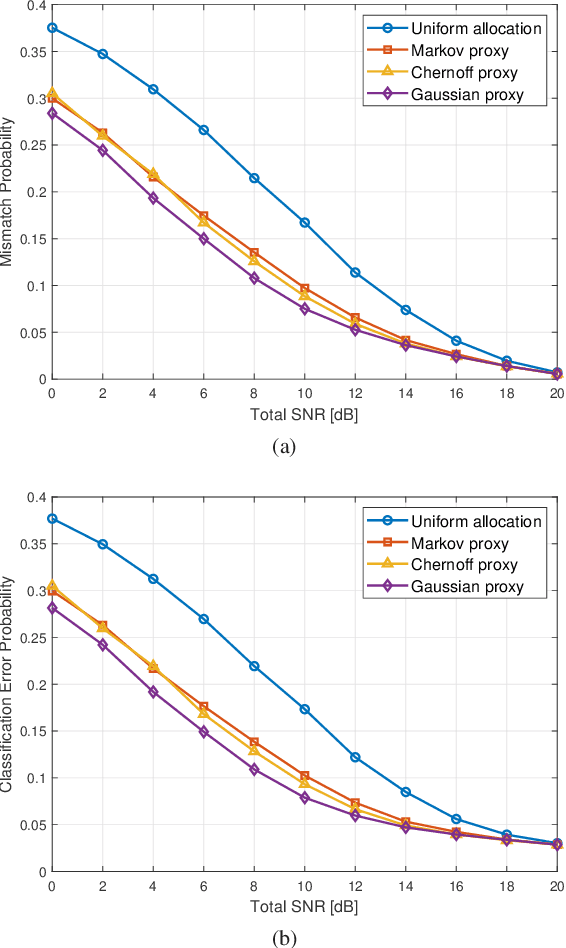Boosting Classifiers with Noisy Inference
Paper and Code
Sep 10, 2019



We present a principled framework to address resource allocation for realizing boosting algorithms on substrates with communication or computation noise. Boosting classifiers (e.g., AdaBoost) make a final decision via a weighted vote from the outputs of many base classifiers (weak classifiers). Suppose that the base classifiers' outputs are noisy or communicated over noisy channels; these noisy outputs will degrade the final classification accuracy. We show that this degradation can be effectively reduced by allocating more system resources for more important base classifiers. We formulate resource optimization problems in terms of importance metrics for boosting. Moreover, we show that the optimized noisy boosting classifiers can be more robust than bagging for the noise during inference (test stage). We provide numerical evidence to demonstrate the benefits of our approach.
 Add to Chrome
Add to Chrome Add to Firefox
Add to Firefox Add to Edge
Add to Edge